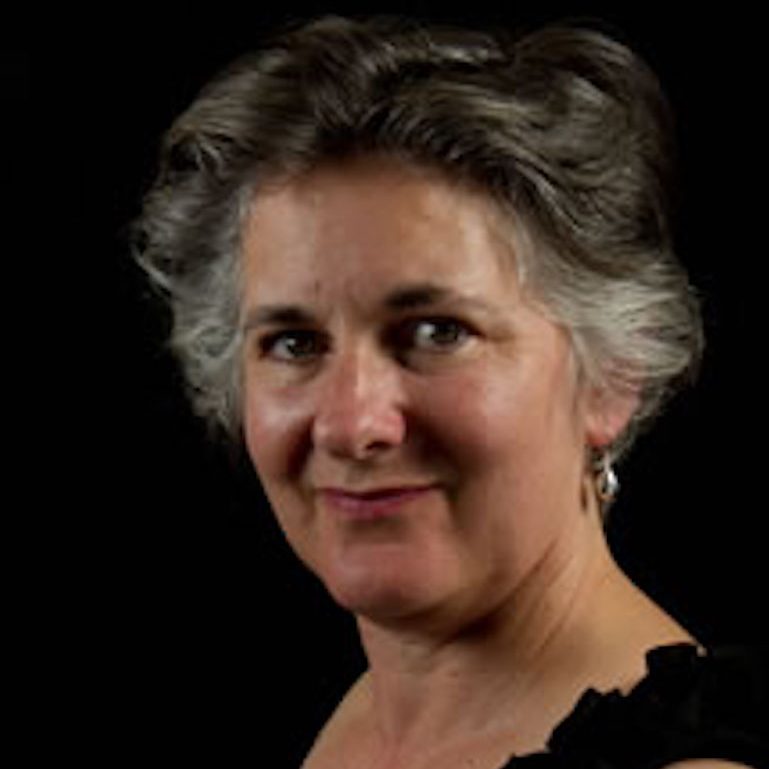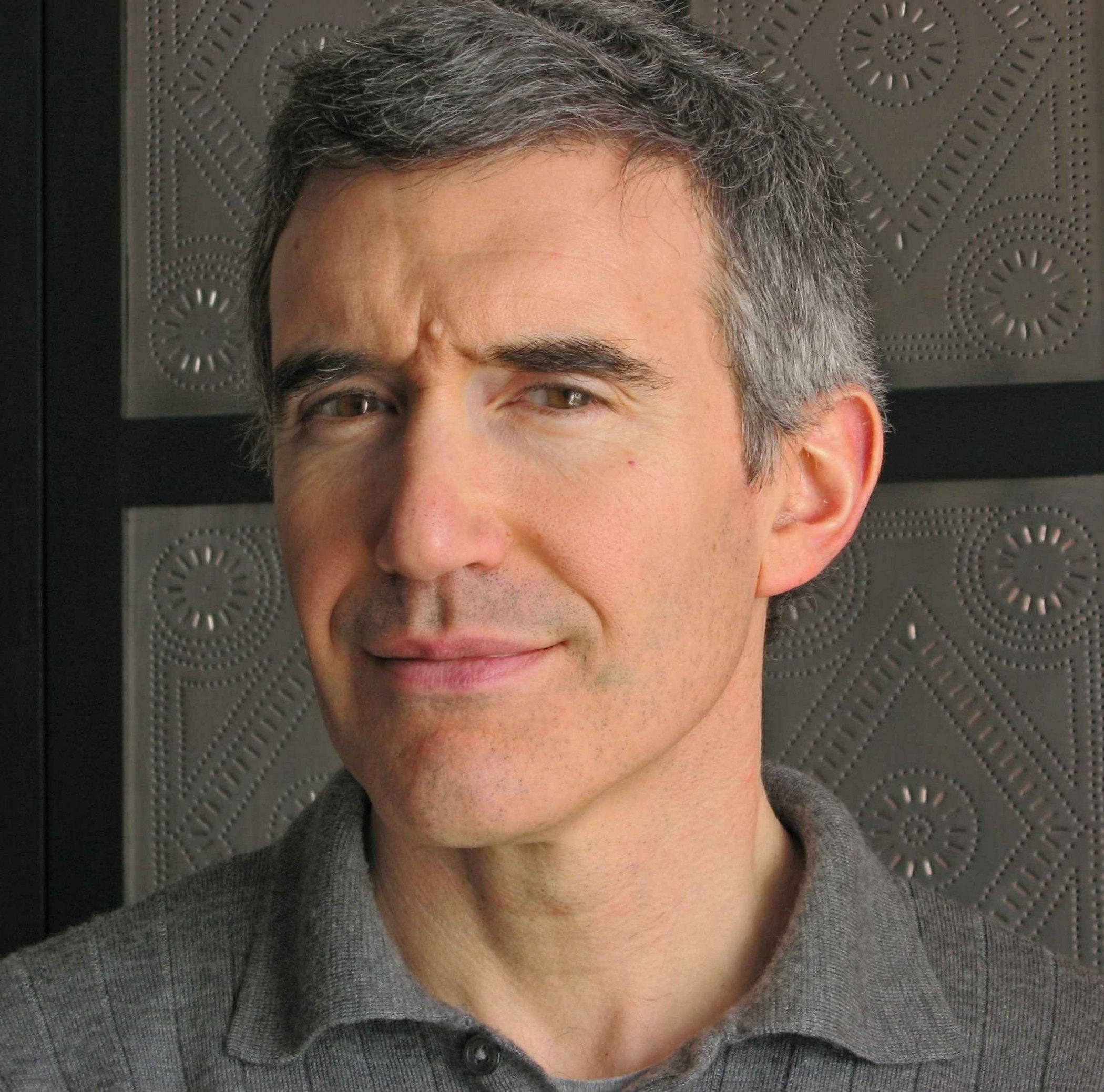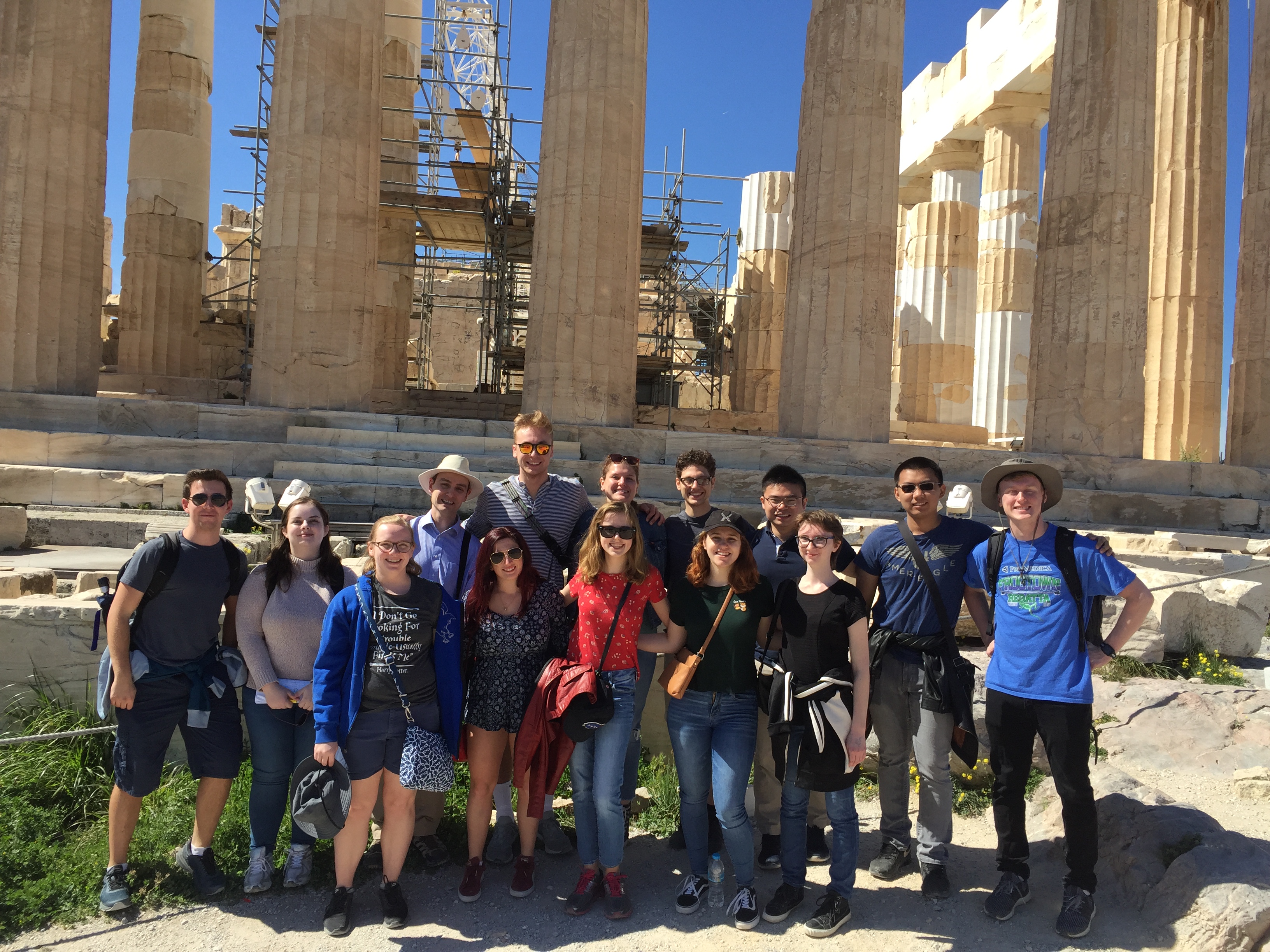October 2, 2019 | Issue 2.0
Edited by Rachel Sternberg
In This Issue:
Classics Day 2019
Letter from the Acting Chair
Faces of the Classics Department
Interview with Saloni Lad
Join Atlantis!
Upcoming Events
Study Abroad Opportunities
Spring 2020 Courses
Classics Day 2019
This year at Classics Day, we had 97 students in attendance from 5 Cleveland-area schools: Benedictine High School, Shaker Heights High School, St. Edward High School, Bard High School Early College, and University School! We also had 13 volunteers, including 4 CWRU student volunteers from Atlantis (Dominica Rollins, Anna Anders, Jillian White, and Jillian Henkelman), all under the direction of Evelyn Adkins.
Students were able to participate in 9 different sessions/workshops throughout the day:
- Classics Jeopardy!, organized and run by Atlantis (headed by Jillian White)
- Scavenger Hunt in Latin in the Cleveland Museum of Art, created by Karl Frerichs and Peter Millett of University School
- Make-Your-Own-Roman-Stola workshop, led by Liz Crowe and Rachel Sternberg
- Hands-On Sessions in the Cleveland Museum of Art run by Seth Pevnick with assistance from Dominica Rollins and Amanda Mikolic
- Virtual Reality “walking simulator” of a Hellenistic Agora, led by R. Benjamin Gorham in the Freedman Center
- Four themed tours of the Cleveland Museum of Art, including:
- Greek Vases with Seth Pevnick
- Dionysos and Theater with Timothy Wutrich
- Death and the Afterlife in Ancient Egypt with Meghan Strong
- Mythology in Art with Mark D. Hammond
Be sure to check out our Facebook page for more pictures from Classics Day!
Letter from Acting Chair Peter Knox
Dear Alumni and Friends of Classics,
The academic year is off to its usual, frenetic start, so it’s a good time not only to look ahead to nine months of teaching, learning, and scholarship, but to recollect all that has happened since Paul Iversen wrote to you last fall.
First, I am writing to you as Acting Chair, because Professor Iversen is the recipient a prestigious fellowship from the National Endowment for the Humanities to complete his book manuscript, The Inscriptions on the Antikythera Mechanism and Doric Calendars. Paul’s work on this unique artefact from antiquity—the Antikythera Mechanism is an ancient Greek computational device used to calculate dates—has drawn international recognition. His book, which will be co-authored with Professor John D. Morgan of the University of Delaware, will represent a milestone in the ongoing efforts to unravel the mysteries of this device. Professor Iversen recently published a related paper in the Archive for History of Exact Sciences, and he has lectured on the subject in a number of venues. His work as chair on behalf of the Classics Department will be sorely missed this year, but more on that later.
In other faculty news, Rachel Sternberg returns to the classroom this fall, refreshed from a sabbatical leave that allowed her to complete her book manuscript, The Ancient Greek Foundations of Human Rights. The book, which was supported by the award of a Faculty Fellowship from the Baker-Nord Center for the Humanities, is now being reviewed for publication. Evelyn Adkins kept busy during her first year at CWRU. In addition to taking charge of Classics Day, the annual event that brings over 100 high school Latin students to our campus, she and our adjunct colleague Mark Hammond taught a group of CWRU students on-site in Rome during the summer. The course, “Rome on Site: The Archaeology of the Eternal City” offers students an unparalleled opportunity to study the ancient city in context and it is rapidly gaining a reputation among the student body. The same can be said for Professor Hammond’s spring course in taught in Greece, “Athens: Idea and Identity from Socrates to Byron.” Both courses will be on offer again in 2020, so if you are a student interested in participating, please contact the department to find out about sources of funding!
Meanwhile Professor Adkins found time to elicit an advance contract from the University of Michigan Press for her book, Discourse, Knowledge, and Power in Apuleius’ Metamorphoses. And Professor Hammond has been busy publishing the results of his field work and taking on a new role as the ceramics specialist at the excavation of a Late Roman fortified settlement at Golemo Gradište, in the village of Konjuh, Republic of North Macedonia. Paul Hay has been a terrific asset to the department’s curriculum, while he has also been making progress on his research projects, publishing several articles and converting his dissertation into a book manuscript on the Roman concept of secularity. Timothy Wutrich presented a paper, “Impasse on Stage: Building a Closed Space in Iphigenia in Aulis,” at the Ancient Drama in Performance V conference at Randoph College. He also appeared (along with Evelyn Adkins) in a staged reading of Aristophanes’ The Assemblywomen at the annual meeting of the Society for Classical Studies in San Diego. Dr. Wutrich has stepped down from his three-year stint as chair of the SCS’ Committee on Ancient and Modern Performance just in time to begin a three-year term of service on the Program Committee of the Classical Association of the Middle West and South.
Our new program in Ancient Egyptian and Near Eastern Studies is not only up and running; it is thriving beyond our expectations. Maddalena Rumor has moved from the History Department to Classics this year and continues to nurture this new program. Students are showing great interest in the courses, and even though the program itself is still in the process of being approved, two students have already successfully completed a Dean’s Approved Minor in it! One article by Prof. Rumor, entitled “At the Dawn of Plant Taxonomy,” appeared in the past year and two others are under review or in press. And additional course offerings on Ancient Egypt are being prepared by Meghan Strong, who is now an Adjunct Professor in our department. Prof. Strong is also hoping to be able to bring students to work on her archaeological dig in Egypt.
During the past year our Chair, Paul Iversen, shepherded to approval the Integrated Graduate Studies track in our MA/BA programs. And the program enrolled its first student, Dominica Rollins. In addition, Prof. Iversen won approval for our Medieval track in the MA program, and secured funding to develop new courses in our Ancient Near Eastern and Egyptian Studies program. Prof. Iversen is a tough act to follow, but with all of that good work in the bank, so to speak, and with the help of our two capable administrative assistants, Jessica Jurcak and Brook Sabin, I am looking forward to another successful year for CWRU Classics!
The department is mourning the loss of first-year Classics student Justine Boyle, who passed away last spring. Thanks to generous donations made in her memory, we’re in the process of getting new furniture for the Classics Department classroom and library.
Last June we bid farewell to six stalwart students who minored in Classics: Madison Avolio, Adam Doros, Bryan Dunbar, Saloni Lad, Emma Staley, and Michel Yuzik. In May, Madison Avolio successfully defended her senior capstone paper,”A Modern Understanding of Ancient Art: Greek Tragedy Sheds Light on the Struggles of Veterans,” supervised by Dr. Wutrich. We are looking forward to working in the classroom with new and continuing students, who turned out in record numbers for our welcome back party this fall. Onward and upward!
Salvete!
Peter Knox
The Faces of the Classics Department
The new faces of the Department…
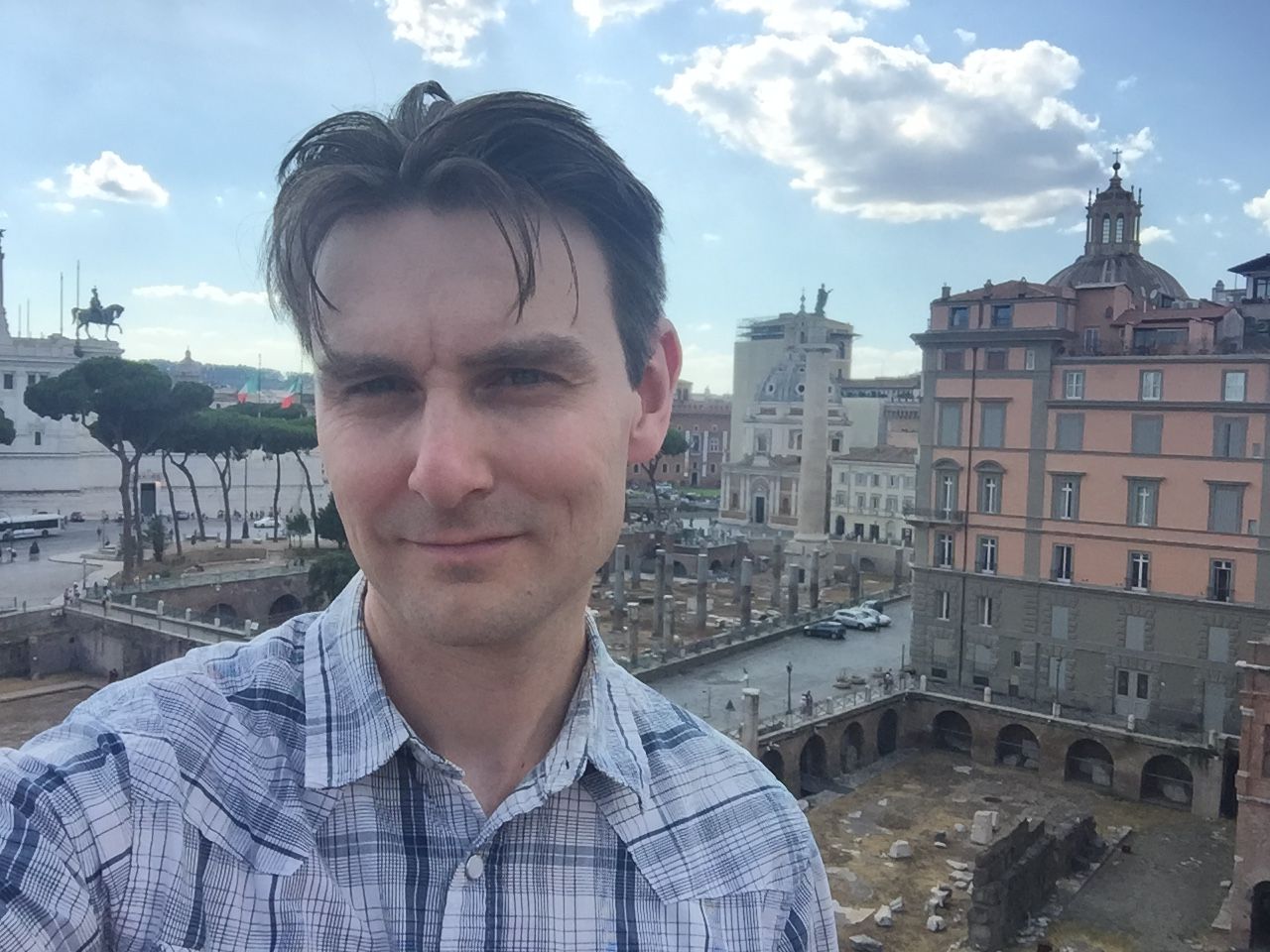 Mark Hammond, Adjunct Professor
Mark Hammond, Adjunct Professor
Ever since my first excavation on the island of Crete in 2000, I’ve been passionate about the material culture that the ancient Greeks and Romans have left behind for us to marvel at today. Since then, I’ve worked on numerous archaeological projects on the islands of Cyprus, Crete, and Kythera, as well as mainland sites including ancient Corinth and Golemo Gradište in the Republic of North Macedonia. I’ve traveled extensively through Greece as a member of the American School of Classical Studies in Athens (while living in Greece for four years!), and have led students on study abroad opportunities through parts of Greece and Italy for three different institutions. After nearly 20 years, the physical remains of the ancients never fail to impress me, whether I’m looking at a temple or a humble cooking pot. In my teaching, whether on-site or abroad, I try to impart to my students the same excitement about the physical remains of the past that I felt as an undergraduate and still do today. Luckily, I have the opportunity to indulge in my passions once again as I lead “CLSC 199 – Athens: Idea and Identity from Socrates to Byron” in Greece next spring!
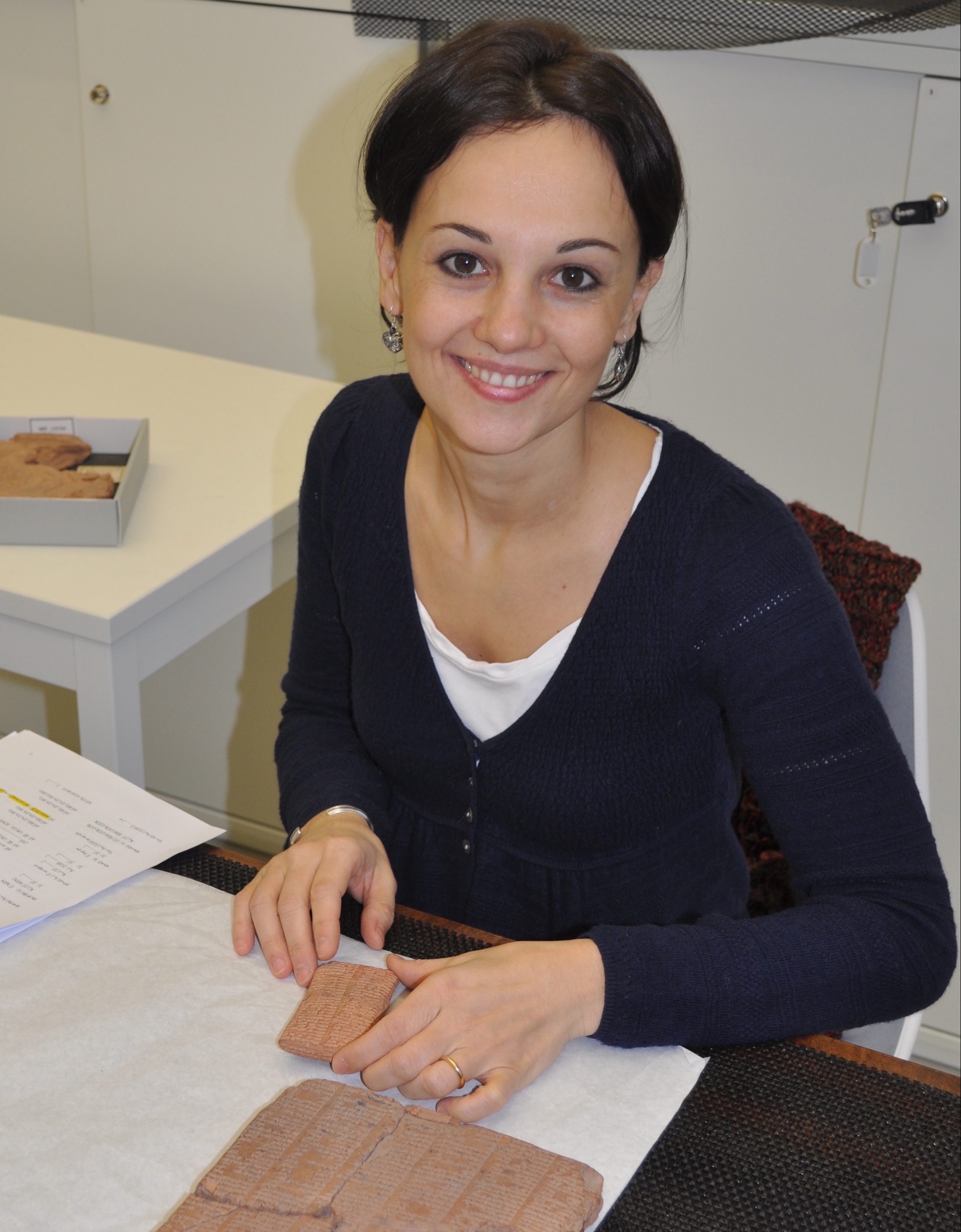 Maddalena Rumor, Visiting Assistant Professor
Maddalena Rumor, Visiting Assistant Professor
I am an Assyriologist and a Historian of Ancient Science. Here at Case I have been teaching courses on the history of ancient Mesopotamia and surrounding cultures, and on their earliest scientific and medical endeavors. When I teach those subjects I like to show how scholars often need to work with conflicting, fragmented (if not plainly missing) evidence to reconstruct life and thought in past cultures. What is peculiar to Babylonian studies, however, is that hundreds of thousands of written documents (i.e. clay tablets) were unearthed in the last 150 years, a great many of which are still unpublished. Countless aspects of ancient history, then, still await to be understood or even to be discovered through their study. So, something I particularly enjoy is to provide students with the tools (Akkadian language and Cuneiform script) to be able to do just that, and share with them the thrill that comes from hearing for the very first time in 3,000-4,000 years an ancient person speaking directly to us.
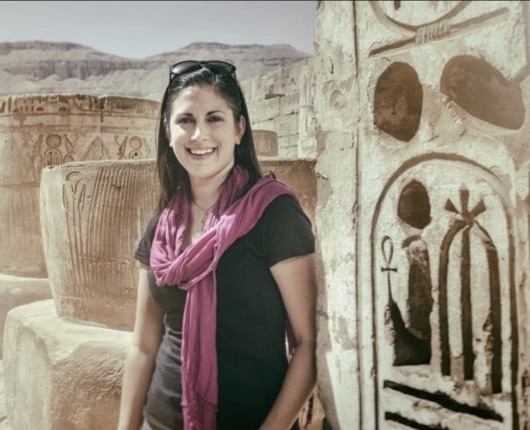 Meghan Strong, Adjunct Professor
Meghan Strong, Adjunct Professor
My area of specialty is the use and experience of Ancient Egyptian ritual objects and space, so I am partial to courses on religion and material culture. I most enjoy working with students on topics that incorporate ancient texts, archaeology and iconography. I love seeing those lightbulb moments when elements that students have learned in different courses — a text from a literature course, an artifact from an art history survey — suddenly connect. I also enjoy discussing the reception of antiquity in the modern world and the historical context of early archaeological exploration, particularly in Egypt and Sudan. Next semester I’ll be teaching a course on the art and architecture of Ancient Egypt and Mesopotamia. I’m really looking forward to sharing how these two cultures influenced each other as well as several subsequent art historical periods.
Also joining us this academic year as an adjunct professor is Karen Lawrence, Assistant Director of Faculty and Alumni Engagement at the Siegal Lifelong Learning.
Interview with Graduated Classics Minor, Saloni Lad
We love to see students flourish, achieve their goals, and move on to the next phase of their lives, but it can be tough to say goodbye.
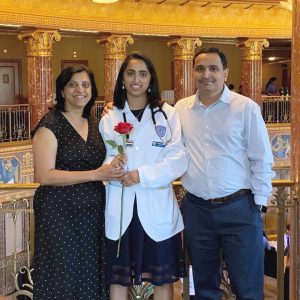 Fortunately, one of our most dedicated Greek students–Saloni Lad–is both moving on (to medical school) and staying in Cleveland. While majoring in Cognitive Science and Biology, Saloni minored in Classics and also earned an MA in Bioethics.
Fortunately, one of our most dedicated Greek students–Saloni Lad–is both moving on (to medical school) and staying in Cleveland. While majoring in Cognitive Science and Biology, Saloni minored in Classics and also earned an MA in Bioethics.
Asked last May about how she got interested in Classics, she replied that she loved Percy Jackson with the same intensity other kids brought to Harry Potter. “I was very much into Greek myths and how they used storytelling to explain natural phenomena. I took up fencing (= sword fighting) and wanted to learn Greek. When, as a freshman at CWRU, I realized I could do that, I did. . . It was a new cool thing I got to do. It’s one of the things I’m most happy that I did and proud that I did. I’m very proud of my freshman self, that I let myself do something for myself without being narrowly focused on medicine.
“I love seeing the etymology, the English cognates, seeing where words came from. I like the way Greek sounds when the professor speaks it. After reading an English translation, you turn to the Greek and see how much meaning got lost.”
Saloni gained admittance to six medical schools, including the University of Pittsburgh, CWRU, and the Cleveland Clinic Lerner College of Medicine — where she got a full ride for all five years.
“Greek will help with medical terminology, for sure,” Saloni says. Beyond that, a lot of the benefit has to do with perspective. Reading texts in both English and in Greek, she says, “primes your brain to see things from different perspectives,” an agility she expects will help her with the practice of medicine.
Asked about CWRU’s Classics Dept, Saloni said:
“I liked how small it was, especially compared to a big science department. Classics is personalized. If it’s just you and the professor — or you and the professor and a few other students — you get so much more out of every class session and learn more in a shorter time. The faculty change class times to accommodate the students; there are parties at the professors’ homes. It’s like a little family. All the professors love what they do. Everyone is enthusiastic. That makes it fun.” And finally, “Being able to go to Greece was really nice, especially since it was mostly paid for.”
Join Atlantis!
by Jillian White, a junior
Atlantis is CWRU’s student-run classics club. We meet once a month for classics-themed events such as movies, games, food, trips to the theatre, and more! All are welcome, whether you are a Classics major, minor, taking a class from our department, or are just interested in making friends and learning more about the Ancient World. Join us at our next event, an evening of board games, on Thursday, October 3rd at 8pm in Thwing 302. For more information, please see our page on CampusGroups!
Upcoming Events
Choices Fair Follow-Up Pizza Party
October 11, 12:45pm
Mather House, Room 100
The Penelopiad by Margaret Atwood
October 18-November 10
Ensemble Theatre
Sophocles’ Antigone
March 28-April 19
Playhouse Square
Study Abroad Opportunities
CLSC 199–Athens: Idea and Identity from Socrates to Byron
This course explores how the Classical Athenians identified themselves, and how that identity related to a broader Greek identity. It also explores how the idea of Classical Athens was received under subsequent rulers of the city (especially the Romans), and how it was re-conceived for the modern Greek state. Students travel to Greece over Spring Break, March 8-14, 2020. Taught by Mark Hammond.
CLSC 326–Rome on Site: The Archaeology of the Eternal City
This course offers the opportunity to examine firsthand Roman remains spanning 500 years of the city’s history. Students will explore all sections of Rome and discover how different spheres of Roman life, such as religion, politics, leisure, and death, combined to shape one of the most renowned cityscapes of the ancient Mediterranean world. Students travel to Rome May 20-June 7, 2020. Taught by Evelyn Adkins.
Check our Facebook page for more pictures from CLSC 199 and CLSC 326!
Spring 2020 Courses:
CLSC-HSTY 232 – Gods and Gladiators: The World of Ancient Rome
The enduring significance of the Romans studied through their history, literature, art, and philosophy. Lectures and discussion. Taught by Evelyn Adkins.
CLSC 295 – Ancient Medicine
A self-paced, computer-assisted course on the classical foundations (etymology) of modern English as well as the basic principles on which roots, prefixes, and suffixes combine to give precise meanings to composite words, which is then applied toward learning medical, biomedical and scientific terminology. Taught by Maddalena Rumor.
CLSC-HSTY 320/420 – Alexander the Great: Materials and Methods
This seminar, as part of the SAGES sequence, offers students a firm grounding in the discipline of Classics, with an emphasis on the diverse materials, methods and approaches that can be brought to bear on the study of Greco-Roman antiquity. Taught by Rachel Sternberg.
ANEE-ARTH 315/415 – Art and Architecture of Ancient Egypt and Mesopotamia (pending approval)
This course will emphasize the examination of art and architecture of Egypt and Mesopotamia in context, focusing on material from prehistory through the 6th century BC. We will explore the deep connection between art, religion, and the worldview of Ancient Egypt and Mesopotamia, in addition to the meaning and audience for art, the principles which guided art production, trends in media and themes over time, and the relationship of writing and art. Taught by Meghan Strong.
ANEE-CLSC-HSTY 337/437 – Ancient Medicine
This course offers a general survey of the history of medicine from its origins in pre-historical times to Galen (2nd c. CE) with a view to gaining a better understanding of the path that eventually lead to modern medical practice. The various medical systems considered, including the ancient Babylonian, Egyptian, Jewish, Chinese, Ayurvedic, Greek and Roman traditions, will be examined through the study of primary and secondary sources, while key conceptual developments and practices are identified within their cultural and social context. Special issues, such as epidemics, women’s medicine, and surgery, are also explored and discussed. Taught by Maddalena Rumor.
Language Courses:
This course is the first in a sequence of two courses intended to cover the fundamentals of Akkadian grammar and a large number of the most common cuneiform signs encountered. A sample of texts (tablets) from the most important genres of cuneiform literature will be read. Taught by Maddalena Rumor.GREK 101 – Elementary Greek I
Beginning course in Greek language, covering grammar (forms and syntax) and the reading of elementary selections from ancient sources. Makes a start toward reading Greek authors. Taught by Rachel Sternberg.
GREK-WLIT 201/401 – Greek Prose Authors
Readings from authors such as Plato, Lysias, Xenophon, and Herodotus. Taught by Timothy Wutrich.
GREK 380/480 – Advanced Topics in Greek Literature
Study and discussion of important authors, works, and topics not covered regularly. Content will reflect particular interests of students and faculty and timeliness of the topics. Taught by Paul Hay.
LATN 102 – Elementary Latin II
An introduction to the elements of Latin: pronunciation, forms, syntax, vocabulary, and reading. Taught by Paul Hay.
LATN-WLIT 202/402 – Vergil
Primarily readings from The Aeneid; selections from Vergil’s other work may be introduced at instructor’s discretion. Recommended preparation: LATN 201 or equivalent. Offered as LATN 202, LATN 402, WLIT 232 and WLIT 432.Taught by Timothy Wutrich.
LATN 355/455 – The Roman Novel
Readings from the two surviving Roman novels, Petronius’ Satyricon and Apuleius’ Metamorphoses or Golden Ass. There will also be discussion of the major themes and approaches to the Roman novel. Recommended preparation: LATN 200 level course or equivalent. Taught by Evelyn Adkins.






